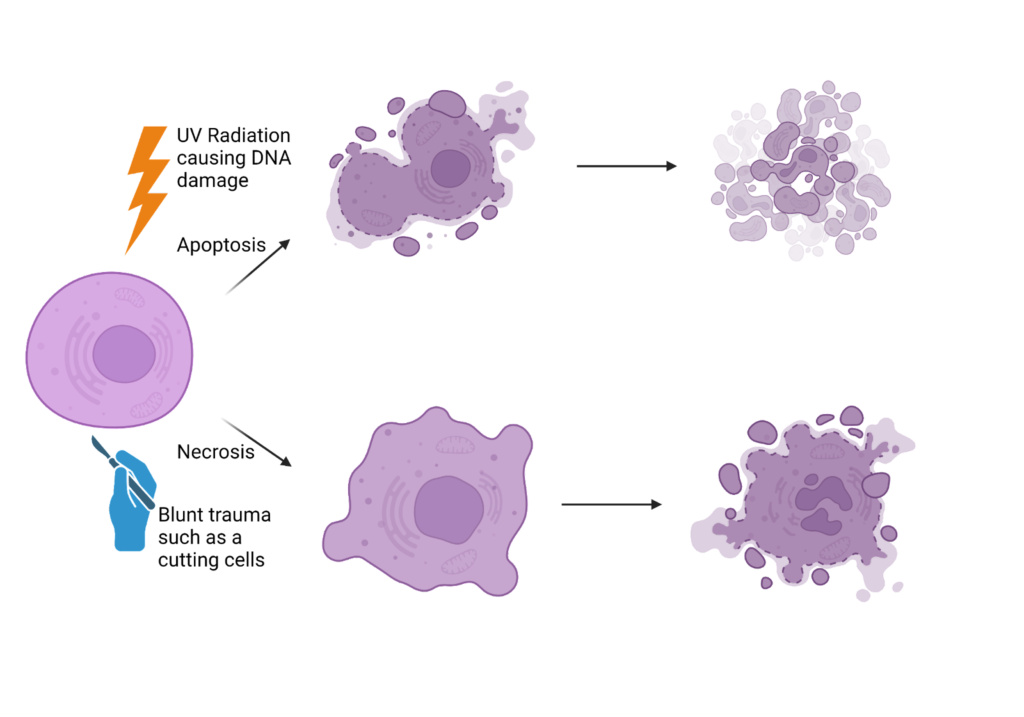(noun. /ay-pop-TOE-sis/)
by Yasemin Cole
What does it mean?
Apoptosis is a coordinated process in which cells die. Many sources define it as “programmed cell death,” an organized process of breaking the cell’s contents. Apoptosis is a healthy aspect of a multicellular organism. For example, we develop a tail during early development, but eventually, the cells that make up the tail undergo apoptosis. This process typically occurs in multicellular organisms like us (unlike cells that live independently, like bacteria and amoebas). In contrast to traumatic cell death through blunt trauma, where the cells burst, apoptosis is highly controlled.
How do I use it in a sentence?
“Humans do not have tails like mice and dogs because these cells undergo apoptosis in early development.”

Etymology
Apoptosis has origins in the early 1970s (coined by John Kerr, Andrew Wylie, and Alastair Currie) from the Greek words apo (from) and ptosis (falling), similar to a fruit falls from a tree (as cited by the Lancet). However, recently it has been discovered that the first use of the term was actually in 1878 by J Cuesta y Ckerner in a book, equating it to an easing or loosening of a bandage. Therefore the historic usage of the term has differed over time.
Related terms
Cell Death
Necrosis
Cell Turnover
Development
Fields of study in which this word is commonly used
Embryology
Cellular/Molecular Biology
Infectious Disease
Neuroscience
Cancer Biology
